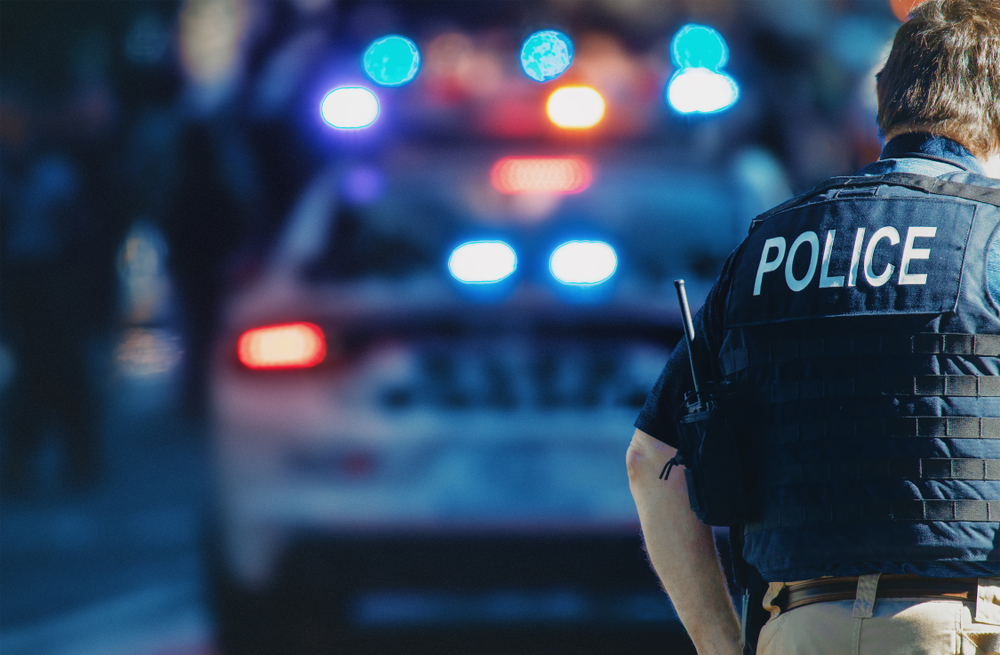Vox Populi
A curated webspace for Poetry, Politics, and Nature. Over 20,000 daily subscribers, 7,000 archived posts, 73 million hits and 5 million visitors.
Sonali Kolhatkar: Taking A Hard Look At Police Killings
Police killed more people last year than any other on record. Can reimagining city budgets make our communities safer?

.
Last year was the deadliest on record for police killings in the United States. According to a Washington Post database, law enforcement officers shot and killed 1,096 people in 2022.
And that’s likely an understatement. According to Abdul Nasser Rad, managing director of research and data at Campaign Zero, the Post “only captures incidents where a police officer discharges their firearm and the victim is killed.”
This means that it wouldn’t count the 2020 killing of George Floyd in Minnesota, for example, which resulted from asphyxiation. Nor would it count the killing of Tyre Nichols, who was brutally beaten to death by Memphis police this year.
In contrast, Campaign Zero’s Mapping Police Violence project includes any action that a law enforcement officer takes that results in a fatal encounter. Rad’s project counted 1,158 police killings in 2021 compared to 1,048 for the Post. (Final results for 2022 are not yet available.)
The upshot is that in spite of the huge public attention to police violence since 2020, police are actually killing more people than before. We can expect 2023 to be even deadlier if the years-long trend continues.
Another clear conclusion is that communities of color face a much higher risk.
According to the Washington Post, Black Americans “are killed by police at more than twice the rate of white Americans.” Mapping Police Violence puts the figure closer to 3 times. Police killings of Latinos and Indigenous people are similarly disproportionate.
In the aftermath of George Floyd’s murder, some activists called for “defunding the police.”
They argued that over-funded police departments — which can often consume a third or more of city budgets — were using their resources to kill people. These advocates wanted to shift some of those funds to reduce poverty, improve mental health, and take other steps to make people safer.
That seemingly reasonable call was greeted with a reactionary backlash. Politicians across the spectrum, including President Joe Biden, promised to increase police funding instead. Biden even begged local governments to use federal stimulus funds to bolster their police departments in 2022.
But does giving police more money result in greater public safety?
One recent study analyzing funding for hundreds of police departments over nearly three decades concluded that “new police budget growth is likely to do one thing: increase misdemeanor arrests.”
These arrests do little to reduce violent crime. Instead, the authors explained, they lead to more police encounters that result in killings.
On the contrary, cities that took steps to reduce arrests for petty crimes saw a decrease in police killings, according to data scientist Samuel Sinyangwe, a cofounder of Campaign Zero. He also concluded that crime rates in those cities did not increase.
These issues needn’t be divisive. None of us should simply accept that police will continue to kill more and more people each year. Making sure our local budgets invest in real safety, not just deadly force, is one place to begin.
The Community Resource Hub has created a powerful internet tool, DefundPolice.org, to help communities put police spending into perspective and reimagine their city budgets. The site includes a detailed video tutorial on how to use tools like a “people’s budget calculator” to advocate for change locally.
We all want safer communities. To get them, we need to put our money toward people’s needs, not deadly deeds.
Sonali Kolhatkar is the host of “Rising Up With Sonali,” a television and radio show on Free Speech TV and Pacifica stations.
This commentary was produced by the Economy for All project at the Independent Media Institute and adapted for syndication by OtherWords.org. Included in Vox Populi under a Creative Commons license.

The reason many cops take the defund the police mantra so personally is because most are paid paltry sums, and this is especially true in red states, where funding the police goes to equipment, special units like the Scorpions, and overtime, not to higher salaries. Moreover, taxation by Citation, as noted above, makes for more run-ins with police and more instances of violence. And because the bar is so low, cops are no longer screened as they used to be. This, combined with low pay, means we’re getting bad cops from day one. Quality pay leads to quality recruits. Defund everything else is my take, including this traffic ticket idiocy.
LikeLike
Thanks, Matthew. I completely agree.
LikeLiked by 1 person
St Louis police start at $62,000 and can get to $85,000. They also have IRAs and a union (health insurance, paid days off, etc.). St. Louis City’s budget pays for all the equipment they need. Defund is defined as “prevent from continuing to receive funds”. It is a term that is counterproductive and often used wrongly. Slogans like “reduce the police budget” or “train the police for better interactions with the citizens” – etc. would be very much more helpful.
LikeLiked by 1 person
I agree, Reese. Redirecting a portion of the police budget toward social services, or having social workers on the police budget makes a lot more sense than “defunding the police.”
LikeLiked by 1 person
YES!
LikeLike
The most important remedy for bad police is to make sure NONE were in the military. Military personnel have the mindset of “shoot first and ask questions later”. When I was in the Army (during Vietnam), I could kill anyone – the actual enemy, civilians, and even one of my own Army troops – no problem.
LikeLiked by 1 person
Thanks, Reese. I agree. Many police departments, especially in urban areas, see themselves as warriors in enemy territory.
LikeLike